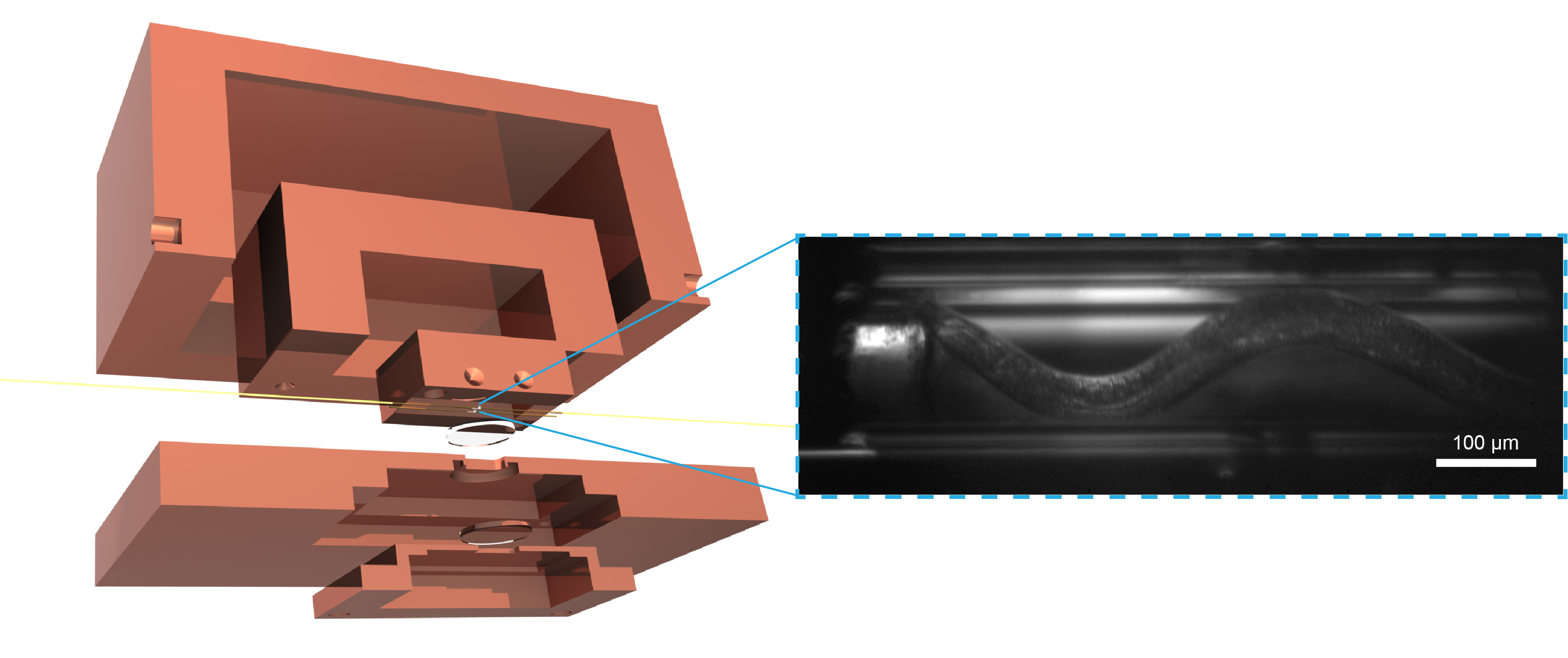Designing from the ground up, two U-M mechanical engineering (ME) PhD students develop a breakthrough calorimeter tool that increases resolution ten-fold and offers real-time monitoring of heat output.
Heat is a by-product of the metabolic process that occurs in all living organisms. The goal of the research that was recently published in Nature Communications, was to develop a calorimeter tool enabling the metabolic heat output of individual model organisms. This was done successfully after designing, developing, and building the new calorimeter tool.
 “The resolution of our calorimeter (0.25 nW) is ten times better than previously reported calorimeter (1.7 nW). This sub-nanowatt resolution allows us to measure metabolic heat output from small organisms like C. elegans or other single cells like Brown fat cells, which was not possible before,” said Rohith Mittapally, U-M ME PhD student sharing the lead on this project.
“The resolution of our calorimeter (0.25 nW) is ten times better than previously reported calorimeter (1.7 nW). This sub-nanowatt resolution allows us to measure metabolic heat output from small organisms like C. elegans or other single cells like Brown fat cells, which was not possible before,” said Rohith Mittapally, U-M ME PhD student sharing the lead on this project.
Looking more closely at organisms allows for more accurate quantification of the energy expenditure of cells at an even smaller level and can lead to important answers to biological questions in the future. Right now, this tool can be used to study cancer cells, energetic single cells, and measure the growth and heat output in real-time.
“Our system is equipped with real-time optical monitoring capabilities and features outstanding thermal stability (10 μK over a day), which allows us to measure heat output changes over a day with the same accuracy, thus enabling long-term metabolic studies,” explained Sung Hoon Hur, recent U-M ME PhD who worked with Mittapally.
Following the rate of heat expenditure holds insights into biological development, aging, and metabolic diseases. Seeing the real-time metabolic rate helps in the study of physiological changes, such as drug treatments or chemical exposure, which was not possible in the past.
“We designed and built this measurement system from scratch based on the broad knowledge of heat transfer, fluid dynamics, statics, electricity, and machining, which are core areas for mechanical engineering,” said Hur.
This research advances our technology and knowledge as we go forward to better understand biological organisms.
Hur and Mittapally work in the labs of U-M ME professors Pramod Reddy and Edgar Meyhofer. They have also worked with Assistant Professor Swathi Yadlapalli from the U-M Department of Cell and Developmental Biology.
See full research paper in Nature Communications, here.

